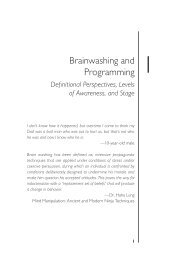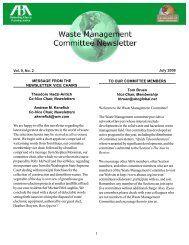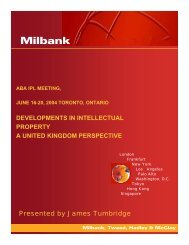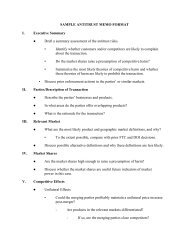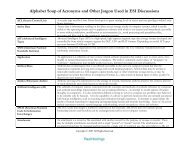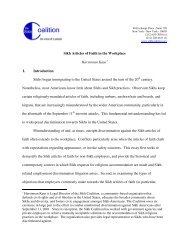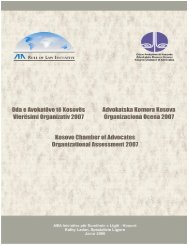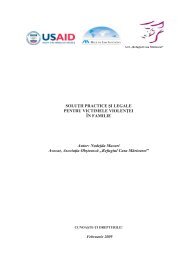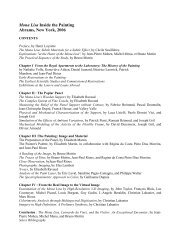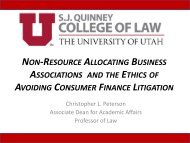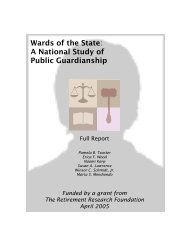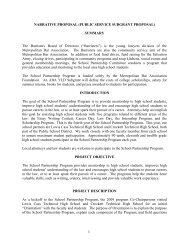Trade Secrets in Employment Relationships in Germany
Trade Secrets in Employment Relationships in Germany
Trade Secrets in Employment Relationships in Germany
Create successful ePaper yourself
Turn your PDF publications into a flip-book with our unique Google optimized e-Paper software.
Carsten Domke LL.M. CMS Hasche Sigle<br />
the damaged company. This is always true with regard to members of the board and<br />
executive employees, as well as all employees who have a say <strong>in</strong> events <strong>in</strong> the<br />
company. What is necessary is that such a person has a fundamental duty of care<br />
with regard to the f<strong>in</strong>ancial <strong>in</strong>terests of the company.<br />
An employee is always <strong>in</strong> breach of his duty to safeguard assets if he communicates<br />
an <strong>in</strong>dustrial secret that has been confided <strong>in</strong> him or makes use of it for himself or for<br />
others.<br />
Accord<strong>in</strong>g to §202a of the Crim<strong>in</strong>al Code (data espionage), it is also a crim<strong>in</strong>al<br />
offense for a person to obta<strong>in</strong> data for himself or another, without authorization, that<br />
was specially protected aga<strong>in</strong>st unauthorized access and that was stored <strong>in</strong> such a<br />
way that it was not directly perceivable or was be<strong>in</strong>g transmitted. This can <strong>in</strong>clude<br />
secret trade and bus<strong>in</strong>ess data. The penalty can be imprisonment not exceed<strong>in</strong>g<br />
three years or a f<strong>in</strong>e.<br />
Under §203 and §204 of the Crim<strong>in</strong>al Code (violation of private secrets), trade<br />
secrets are expressly <strong>in</strong>cluded <strong>in</strong> the protected secrets confided <strong>in</strong> specified<br />
professionals, such as officeholders. They are protected there aga<strong>in</strong>st disclosure<br />
and exploitation even without the subjective prerequisites set out <strong>in</strong> §17 of the Unfair<br />
Competition Act be<strong>in</strong>g met. An offender faces imprisonment not exceed<strong>in</strong>g one year<br />
under §203 of the Crim<strong>in</strong>al Code and not exceed<strong>in</strong>g two years under §204 of the<br />
Crim<strong>in</strong>al Code or a f<strong>in</strong>e.<br />
If one of the provisions of crim<strong>in</strong>al law has been violated, sanctions imposed dur<strong>in</strong>g<br />
employment can be based on such violation.<br />
VI. Punitive Provisions Under Labor Law, Corporate Law and Commercial Law<br />
There are explicit provisions under commercial law, particularly corporate law, for the<br />
protection of trade secrets, such as §90 of the Commercial Code, accord<strong>in</strong>g to which<br />
commercial agents may not exploit trade secrets confided <strong>in</strong> them, §79 and §120 of<br />
the German Works Constitution Act, accord<strong>in</strong>g to which members and substitute<br />
members of works councils may not exploit trade secrets of which they ga<strong>in</strong><br />
knowledge through their membership, or §404 of the German Stock Corporation Act<br />
(Aktiengesetz), accord<strong>in</strong>g to which members of management boards or supervisory<br />
boards may not disclose trade secrets to third parties.<br />
The different provisions all have a uniform structure. The elements of the offenses<br />
<strong>in</strong>clude the acts of reveal<strong>in</strong>g secrets that offenders ga<strong>in</strong>ed knowledge of as<br />
officeholders of a company and exploit<strong>in</strong>g them without authorization. Reveal<strong>in</strong>g a<br />
secret means any communication of it to a third party. The attempt to do so is not a<br />
crim<strong>in</strong>al offense. The penalty is imprisonment not exceed<strong>in</strong>g one year or a f<strong>in</strong>e.<br />
Aggravated offenses are cases <strong>in</strong> which an offender acts <strong>in</strong> return for payment or<br />
with the <strong>in</strong>tent of enrich<strong>in</strong>g himself or others or of harm<strong>in</strong>g another party (§404(1),<br />
second sentence, of the Stock Corporation Act, §333 of the Commercial Code,<br />
§120(3), first sentence of the Works Constitution Act.<br />
However, these provisions have not ga<strong>in</strong>ed any particular importance <strong>in</strong> practice to<br />
date because their restriction to a group of offenders, the necessity of fil<strong>in</strong>g charges<br />
L:\JOBS\42179 ABA LEL\42179_Book vol 1\WIP files\Papers\125_Domke.doc<br />
7



